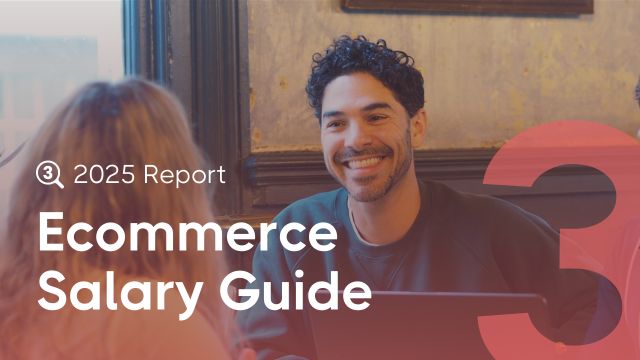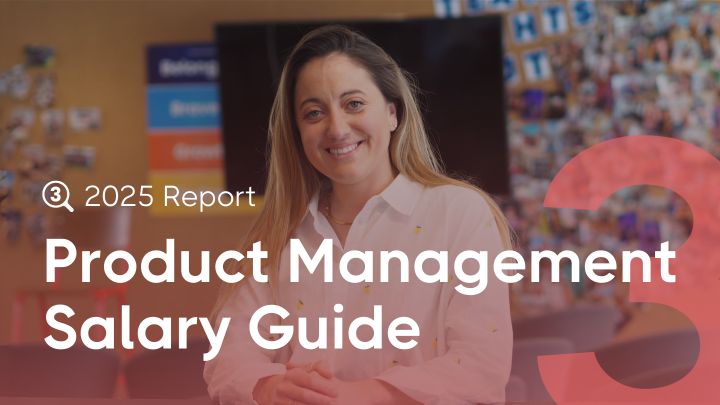
At the end of 2023, we surveyed over 1,200 digital and marketing professionals in our Annual Pay & Hiring Survey. This survey asked for employees' opinions of their compensation package, working practices and diversity, equity and inclusion (DE&I) policies.
Using this data, we have identified trends across the feelings of female and Black, Asian and Mixed Ethnicity employees. The key takeaway for employers being that these minority groups are most likely to search for a new role in 2024. Our report shows that this is because they are more likely to be underpaid and under-represented in their role.
While the majority of business leaders recognise DE&I as a priority, our findings reveals a clear need to evaluate initiatives to improve retention of people from underrepresented backgrounds. This report looks at some of the ways businesses can become more aligned on DE&I and improve diversity in the workforce.
"In 2024, the majority of businesses understand the importance of diversity, equity & inclusion and have taken action to improve their organisation in each area. However, there is still a long way to go before meaningful impact is seen.
In fact, with inflationary pressures and a cost of living crisis, we’ve noticed that DE&I has dropped down the list of priorities for a number of business. But, in our opinion, it certainly hasn’t diminished as an area that businesses should focus time and effort on."
Charlie Rawstron, Founder of 3Search
Key takeaways
71% of ethnically diverse employees will be searching for a new job in 2024
- The number of Black, Asian and Mixed Ethnicity employees looking for a new role in 2024, is above average.
- Just 59% of White British employees will be seeking a new role.
- 71% of female employees will be searching for a new opportunity if asked to work from the office more.
When building diverse teams, retention directly impacts attraction. Our data has revealed that people from underrepresented backgrounds are looking to leave their current roles. So, organisations should make creating a more inclusive workplace a priority.
Losing the diverse talent that are already a part of the business will make hiring processes more difficult. Nobody wants to work in an organisation that they feel isolated in.
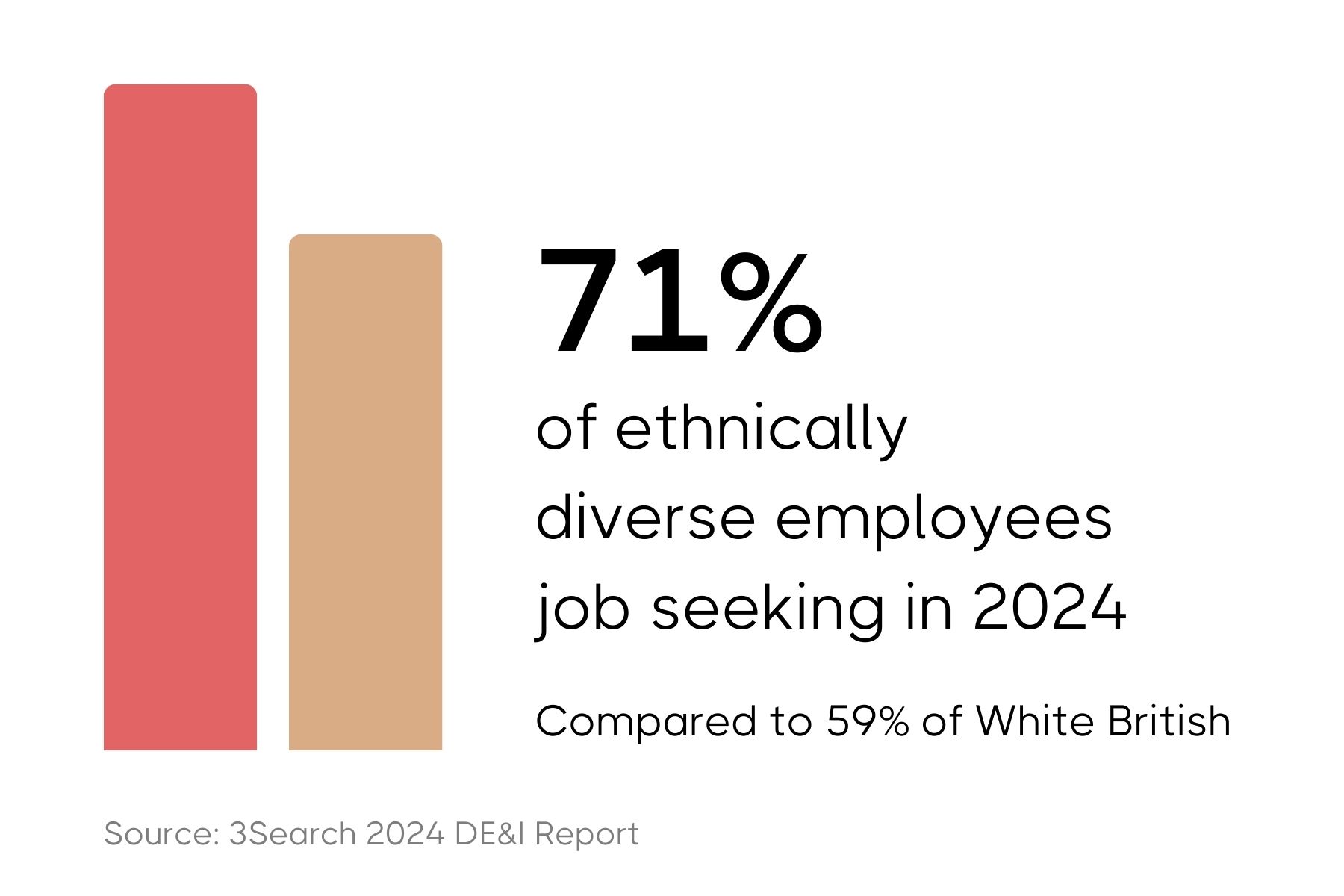
The gender pay gap is more prevalent in the financial services industry
- The gender pay gap across all respondents was 7%, which is in line with the national average.
- In the financial services industry, however, the gender pay gap sits at 18% - 11% higher than the average.
- Our data revealed the same trend in bonuses, with 46% of men receiving a bonus compared to just 38% of women. It was also more common for men to receive higher bonuses.
- One of the biggest contributors to the gender pay gap is the seniority of female employees. In our responses, 41% of men held the title of Head of or above, compared to just 32% of women.
In our report, we have included some ideas of how to attract more women into senior roles. We have also explored some ways that businesses can improve retention rates of female employees so they progress their career within your organisation.
57% of black employees earn below the average salary
- The average respondent to our survey earns between £50,000 - £69,999. The majority of black employees earn below this level.
- 80% of black respondents held the Manager job title or below. 53% of White British employees hold the same job title.
- 48% of black employees and 46% of mixed-ethnicity employees feel underpaid in their current positions. This is compared to just 36% of White British employees.
Within the report, we have included some suggestions for how to decrease your gender and ethnicity pay gaps. Pay gap reporting and salary benchmarking, for instance, is particularly useful to expose unconscious biases.
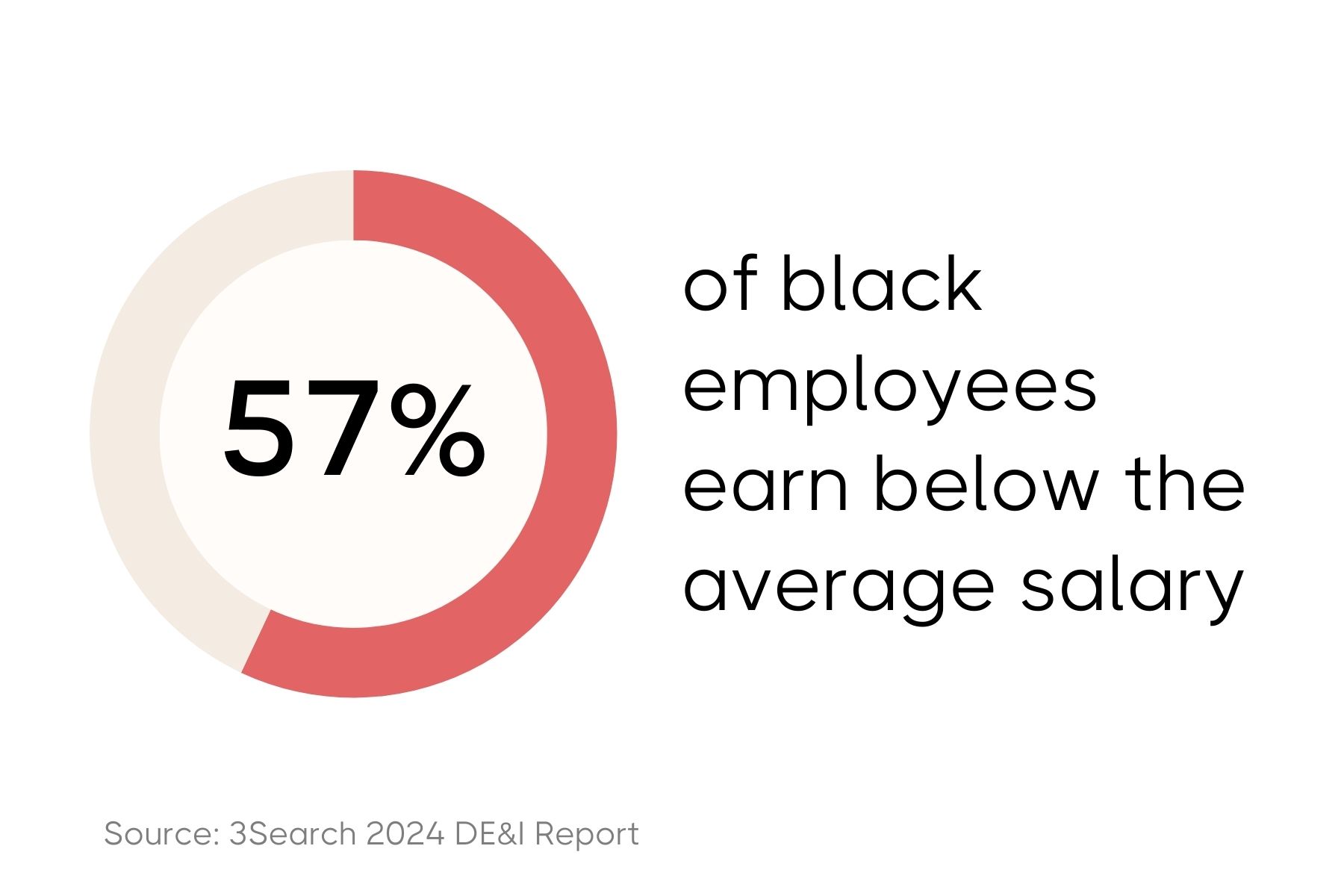
34% of employees intending to leave their current role don’t feel that the business has an inclusive culture
- One third of women believe that their business doesn't evaluate performance fairly.
- Businesses need to take more action to create an inclusive work environment for different ethnic groups. Our data reveals that 23% of Black employees feel that they cannot be themselves at work. Furthermore, 19% of Mixed Ethnicity employees and 13% of Asian employees feel the same way. This is compared to just 11% of White British employees.
An inclusive and safe company culture is crucial to business productivity and employee satisfaction. Ella McCann-Tomlin, Founder of Ardent, a diversity, equity and inclusion consultancy, shares some of the ways that businesses can improve their company culture in the report.
Employees are dissatisfied with the performance of DE&I policies
Our survey data reveals a significant disconnect between business leaders, line managers, and employees regarding the effectiveness of DE&I policies. Some examples of this gap includes:
- 100% of business leaders shared that people from all backgrounds have equal opportunity to succeed at their organisation. Meanwhile, just 57% of employees also agree with that statement.
- 85% of business leaders believe that DE&I is a regularly communicated topic in their organisation. However, 57% of line managers disagree.
- 48% of business leaders believe that their organisation is performing well against their stated DE&I goals. However, 39% of employees feel the same way and just 33% of line managers.
Ella McCann-Tomlin also commented on this topic, sharing "I've rarely worked with a client who doesn't have some kind of perception gap between what the leadership team tells me and what we find out in the data gathering."
A large part of Ella's role is to support businesses with their communication around diversity in the workplace, helping business leaders to create more effective action plans. She delves into some of the ways that teams can become more aligned in our report.
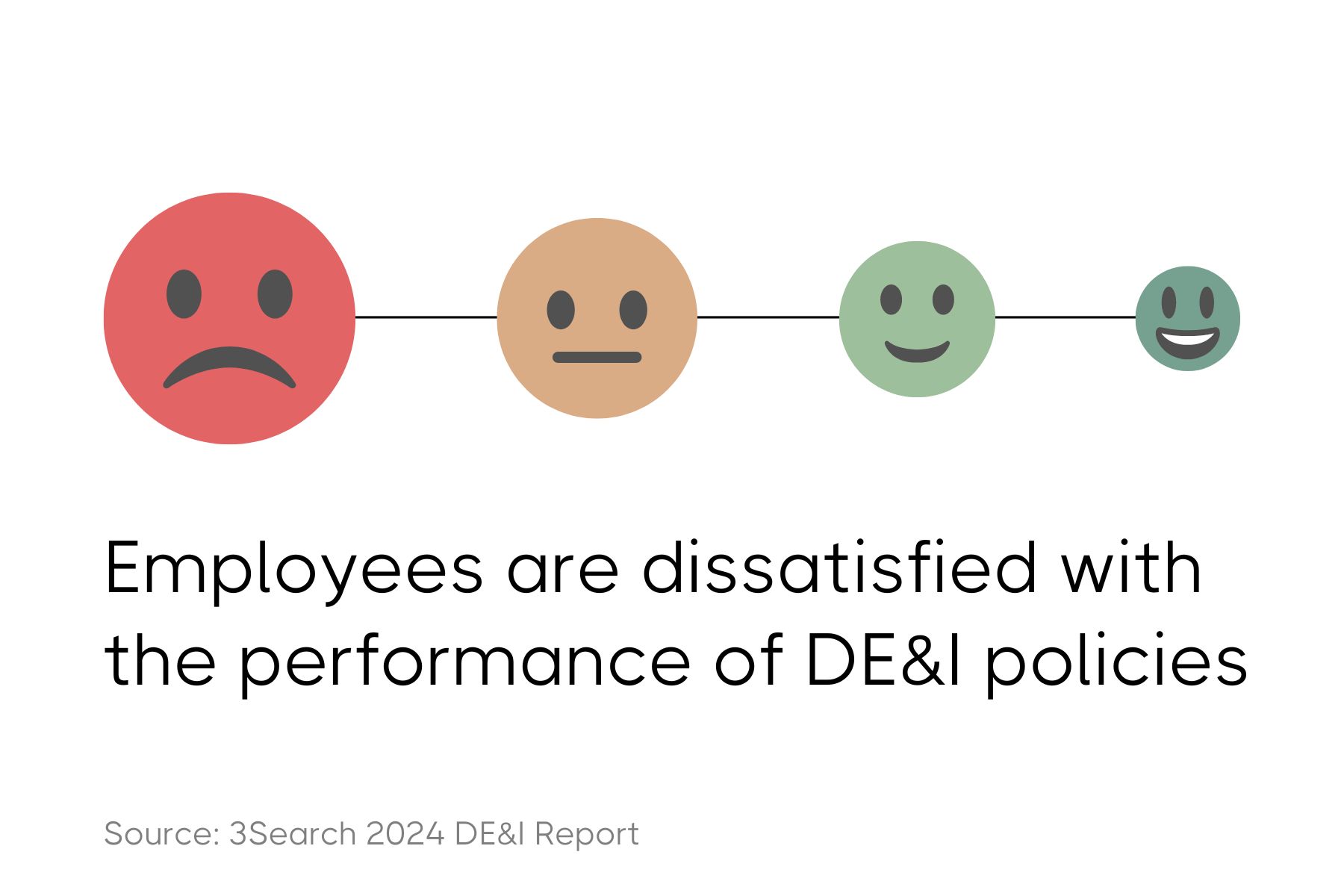
Get in touch for digital and marketing recruitment support
This report highlights the importance of creating strong talent strategies in 2024. For more support with your attraction and retention strategies, get in touch with the team!
Further resources around DE&I
Continue exploring the topic of diversity in marketing and digital by exploring our knowledge hub linked below:



